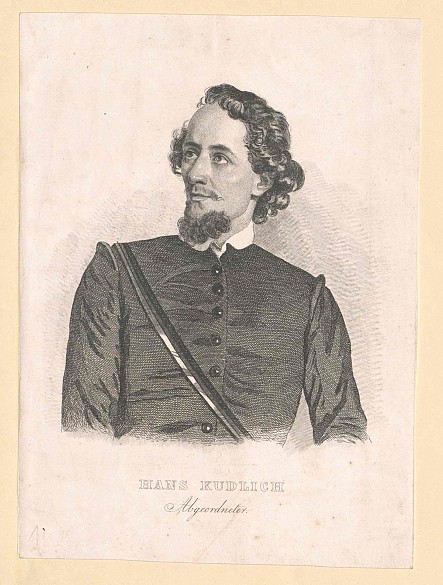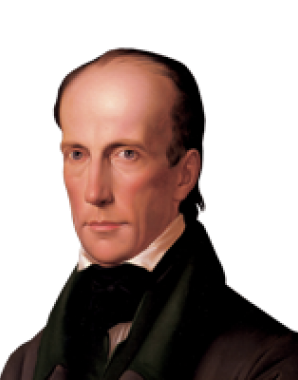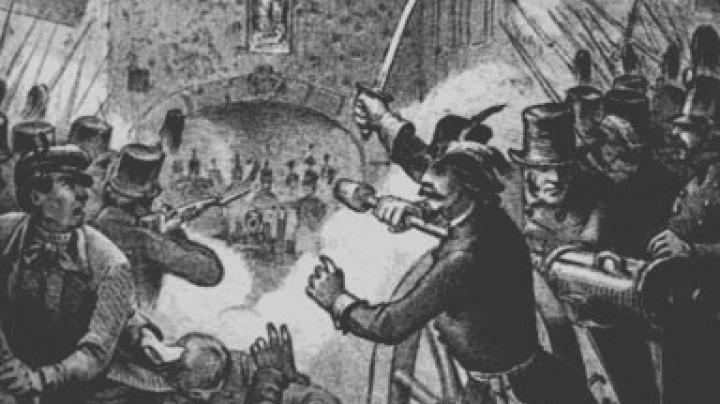The peasant is free
Feudal structures still determined the peasants’ way of life. But this was finally to change as a result of the endeavours of Hans Kudlich…
After the Constituent Diet was opened in Vienna in July 1848 by Archduke Johann for the purpose of producing the first draft of a constitution, Hans Kudlich (1823 – 1917) presented his demands to the Diet. A student and son of a peasant, he used this opportunity to put forward his application for ‘revocation of the subservient condition of the peasants’. In the following speech to the general public he criticized the functioning of the government.What has not been discussed are precisely those laws which affect the personal liberty of the subject in such a way that we can look upon this as a state of emergency, as a state of siege upon personal liberty, and one which a high Assembly based upon the sovereignty of the people can no longer tolerate. (Applause) It will, of course, be objected that the thing will come to an end of itself, but I say: this cannot be silently given to the people; it must happen with a ceremonial proclamation of the Austrian people (applause), to complete those steps once started by a monarch called Josef. What a monarch has done for his subjects, the Austrian people should do for themselves, that is what we should do for our brothers. (Applause) It is an irony when one hears that the sovereign Austrian people grants itself a constitution built on democratic foundations, and that in all the provinces there is a state of affairs which, in essence, can hardly be distinguished from the old serfdom, (applause) and so it is contradictory if we have subjects sitting alongside citizens; now and forever I am unable to reconcile these two terms: ‘subjects’ and ‘citizens’.
Hans Kudlich demanded freedom of the press and political participation, but above all the emancipation of the peasants from obligatory dues and services and all aspects of subservience – and thereby the abolition of manorial rights. The manorial system had guaranteed the European system of rule since the early Middle Ages. The ‘lordship over land and people’ meant that the peasants were legally subordinate to a landowner and that the land they farmed did not belong to them. They were therefore obliged to pay dues to the owner, mostly in the form of money, obligatory labour (robot) and payments in kind, such as a proportion of their harvest.
The Vienna Imperial Diet, the first freely elected parliament in the Danube Monarchy, addressed the demands of the peasantry in the Agrarian Reform Patent of 7 September 1848. Whether we can truly talk of ‘peasant emancipation’ is however questionable. Peasants could legally apply to buy their farms for one third of the estimated value. The state paid a further third to the landowners, who for their part had to forgo their own third. However, many peasants were unable to raise the necessary funds to buy their farms, and many of them consequently moved to the towns and cities and henceforth supported themselves by waged labour.














